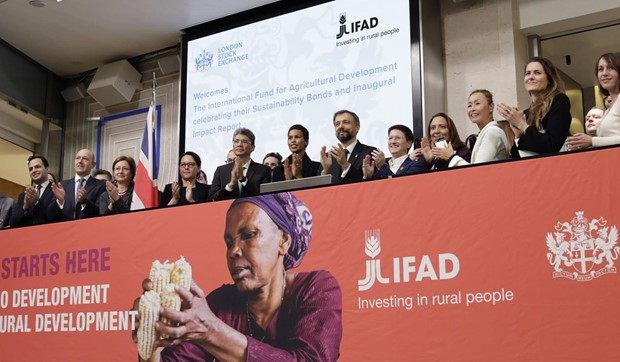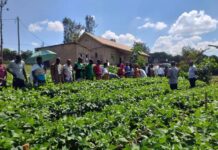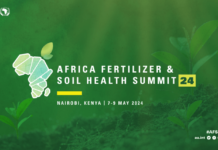Private investors are a powerful force to help us fund a world where no one is left behind, said Alvaro Lario, President of the UN’s International Fund for Agricultural Development (IFAD) at the London Stock Exchange (LSE). He opened the markets today to mark the admission of IFAD bonds on the LSE’s Sustainable Bond Market together with UN IFAD Goodwill Ambassador Sabrina Dhowre Elba, RT Hon Andrew Mitchell, the Minister of State for Development and Africa, UK and Julia Hoggett, CEO of LSE plc.
Today also marks the first time a United Nations Fund and specialized agency has listed its sustainable bond on the LSE market since the World Bank Group.
“Today poverty, hunger and climate change know no borders. Working together, we can build the bridges that connect private capital with global needs and have a systemic and positive impact on the income and the lives of rural people,” said Lario. “The London Stock Exchange can help channel capital to invest in productive agriculture, rural transformation, and rural jobs to fight poverty and hunger in remote rural areas of developing countries. Despite playing a crucial role to feed the world and contributing to its stability, small-scale farmers are overlooked and underfunded.”
Julia Hoggett, CEO, LSE plc said: “We are honoured to welcome IFAD to the London Stock Exchange and celebrate the listing of its sustainability bonds on our market. Pivotal to our purpose as a stock exchange is our commitment to delivering real-world, tangible benefits to the economies we serve globally, highlighted by the many Sovereigns and Supranational Agencies that have chosen London’s markets to raise sustainable capital. We are delighted to be supporting the efforts of IFAD today, and their goals to improve the lives of some of the most vulnerable communities across the world.” Small-scale farmers produce one third of food globally and up to 70 percent of the food in low- and middle-income countries. Yet, they suffer from hunger and poverty and are affected by climate change.
As per IFAD’s Sustainable Development Finance Framework, the proceeds of IFAD sustainable bonds are invested in IFAD programmes to finance its mission in lifting rural people out of poverty and hunger and addressing the effects of climate change.
After the market opening, IFAD presented its first impact report outlining how the proceeds of IFAD bonds issued in 2022 have been invested.
IFAD investments support small-scale farmers to adapt to climate change, promote gender equality, create employment opportunities for youth and improve rural people’s nutrition. They also help to protect natural resources and biodiversity, limit post-harvest losses, help farmers access markets and financial services enabling them to set up small agribusinesses and earn a decent income.
IFAD programmes contribute to 16 out of 17 of the UN’s Sustainable Development Goals.
As outlined in IFAD’s first impact report, the proceeds of IFAD bonds issued through private placements with Folksam, a leading insurance and pension fund in Sweden for US$100 million and Dai-ichi Frontier Life, a Japanese life insurance company for US$50 million in 2022, will reach close to 2 million rural people, providing, for example: climate information, trainings to develop income generating activities, access to climate resilient technologies and practices, water infrastructure, and support for families to build better lives for themselves and their communities.
“IFAD invests where it is needed most: in rural areas, at the forefront of the fight against hunger. We deliver economic growth, greater food security, rural jobs and prosperity. Our 45-year experience shows that these investments provide solid impact and returns for both public and private financing,” said Lario.
Thanks to IFAD investments between 2019-2021, 77 million rural people increased their income, 66 million increased their production and 38 million built up their resilience to climate change.
In 2022, IFAD issued its first sustainable bond and became the first United Nations Fund and the only UN body and specialized agency other than the World Bank Group to operate in capital markets after obtaining two AA+ credit ratings from Fitch and Standard & Poor’s.
Engaging with capital markets is part of IFAD’s strategy to explore new funding sources to channel more resources to vulnerable rural populations in low- and middle-income countries. This is critical as Official Development Assistance is increasingly constrained by tight public budgets and the climate emergency requires a significant scale-up of climate finance to mitigate emissions and help the world adapt.
IFAD is currently in the midst of its 13th replenishment and calling for an ambitious scaling-up of investments in rural people and food systems. This call to action is another ring of the bell to ensure there is enough food to feed the planet tomorrow and reverse trends on hunger and poverty which too often lead to migration, conflicts and instability.









